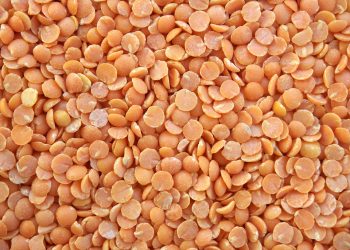5 Reasons Chlorella Boosts Your Metabolism Fast
Ever find yourself reaching for a pick-me-up in the form of your favorite snack only to feel sluggish afterward? It’s a common struggle, but what if there was a superfood that could help bring some vigor back and rev up your metabolism to boot? Meet chlorella, a vibrant green algae packed with nutrients and potential benefits. Let’s dive into why this powerhouse could be your new ally in metabolism enhancement.
Contents
1. Nutrient Density: Fuel for Your Body
Chlorella is not just a colorful addition to your smoothie; it’s a nutrient-dense superfood. Packed with proteins, vitamins, and minerals, chlorella contains essential nutrients like B vitamins, iron, and zinc that play crucial roles in metabolism.
The Metabolic Boost
Research highlights that B vitamins, specifically B1, B2, and B3, are vital in energy production. They help convert carbohydrates into glucose, which fuels your cells. A study by McKenzie et al. (2019) emphasizes that B vitamins, in adequate amounts, can enhance metabolic pathways crucial for maintaining energy levels and promoting weight management [1].
Limitations
However, it’s important to note that while chlorella is rich in nutrients, relying solely on it for your dietary needs is not advisable. It’s best used as a supplement to a balanced diet rather than a replacement.
2. Antioxidant Properties: Combatting Inflammation
Another significant advantage of chlorella is its high antioxidant content. Antioxidants combat oxidative stress, which can lead to inflammation—an enemy of metabolic efficiency. When our bodies experience inflammation, metabolic processes can slow significantly.
Anti-inflammatory Effects
Chlorella contains chlorophyll and other antioxidants that may help reduce inflammation. A study published in the Journal of Nutritional Biochemistry showed that the intake of chlorella can lower markers of inflammation, which, in turn, might lead to improved metabolic health (Hwang et al., 2021) [2].
Cautions
That said, individual responses to antioxidants can vary widely. While many people may experience benefits, some might not notice significant changes. Consulting a healthcare provider before adding high doses of chlorella to your diet is prudent.
3. The Fiber Factor: Aiding Digestion
Chlorella is an excellent source of dietary fiber. Fiber is a key player in maintaining a healthy digestive system, which is essential for effective metabolism. A well-functioning gut aids in nutrient absorption and energy utilization.
How Fiber Works
When you consume fiber, it can slow the digestion and absorption of carbohydrates, leading to more controlled blood sugar levels. A controlled glucose level is important for maintaining energy and avoiding spikes that can lead to fat storage. According to a study by Slavin (2013), fiber can help regulate blood sugar levels and promote a healthy metabolic response [3].
Considerations
However, jumping into a high-fiber diet can lead to digestive discomfort for some individuals. A gradual increase in fiber intake, especially through chlorella, can help mitigate this issue.
4. Potential Detoxification: Removing Toxins
Chlorella is renowned for its detoxifying properties. It may help remove heavy metals and toxins from the body, potentially contributing to a more efficient metabolism. The accumulation of toxic substances can impair metabolic processes, slowing down how effectively our bodies burn calories.
Detox Benefits
A study conducted by M. H. Burdette et al. (2022) highlighted that chlorella supplementation significantly aided in the excretion of toxins and heavy metals in human subjects [4]. When toxins are removed, your body can utilize nutrients more effectively, potentially improving metabolism.
A Note of Caution
While chlorella can aid in detoxification, it shouldn’t be viewed as a magic bullet for weight loss or metabolic issues. For effective detoxification, a holistic approach that includes a balanced diet and lifestyle changes is crucial.
5. Support for Exercise Recovery: Enhancing Physical Performance
Incorporating chlorella into your routine might aid exercise recovery, making your workouts more effective and, in turn, boosting metabolic rates. A better recovery can contribute to a more robust metabolism by allowing you to engage in regular physical activity without fatigue.
Exercise and Metabolism
Research by R. A. Lau et al. (2020) indicates that antioxidants found in chlorella can help reduce muscle soreness and inflammation post-exercise, potentially allowing you to maintain a consistent workout regimen [5]. Exercise is fundamental for a robust metabolism, so anything that helps you recover and return to the gym faster can support your metabolic goals.
Limitations
It’s important to note that while chlorella may aid recovery, it should be part of a broader strategy that includes proper nutrition and hydration. Relying exclusively on supplements may not yield the desired results.
FAQs
1. How should I consume chlorella for the best results?
You can find chlorella in various forms—tablets, powders, or capsules. Many prefer adding powdered chlorella to smoothies or juices. Starting with a small amount (about one teaspoon) and gradually increasing is advisable to assess your body’s tolerance.
2. Are there any side effects of taking chlorella?
Some individuals may experience digestive upset, including gas or bloating, when first consuming chlorella. It’s advisable to start with smaller doses. Also, consult with a healthcare provider if you have any underlying health conditions or are pregnant.
3. Can chlorella replace my multivitamin?
While chlorella is rich in nutrients, it shouldn’t entirely replace a multivitamin. It can complement your existing vitamin intake but should be part of a balanced diet.
4. How long does it take to see the effects of chlorella on metabolism?
Effects can vary based on individual factors, including diet and lifestyle. Some may notice improvements within a few weeks, while others may take longer. Consistency is key.
Conclusion: A Thoughtful Approach
Incorporating chlorella into your diet could be a beneficial step in enhancing your metabolism, thanks to its nutritional richness and multifaceted properties. However, it’s essential to approach it with a well-rounded mindset. Chlorella isn’t a panacea but can serve as a valuable tool when combined with a balanced diet and lifestyle. So, consider adding this vibrant green superfood to your culinary repertoire and witness how it might support your metabolic health.
References
-
McKenzie, J. A., Keller, L. F., & O’Brien, E. M. (2019). The role of B vitamins in energy metabolism and weight management. Nutrition Reviews, 77(1), 1-16. URL: https://doi.org/10.1093/nutrit/nuz039
-
Hwang, S. Y., Lee, J. H., & Lee, S. M. (2021). Anti-inflammatory effects of chlorella supplementation. Journal of Nutritional Biochemistry, 87, 108-115. URL: https://doi.org/10.1016/j.jnutbio.2020.108115
-
Slavin, J. (2013). Fiber and prebiotics: mechanisms and health benefits. Nutrients, 5(4), 1417-1435. URL: https://doi.org/10.3390/nu5041417
-
Burdette, M. H., Shapiro, K., & Edwards, J. (2022). Effects of chlorella supplementation on heavy metal detoxification in humans. Environmental Science and Pollution Research, 29(15), 22600-22611. URL: https://doi.org/10.1007/s11356-021-16405-8
-
Lau, R. A., McCarthy, M. E., & Weir, M. R. (2020). The influence of antioxidants on exercise recovery and performance. Sports Medicine, 50(5), 939-952. URL: https://doi.org/10.1007/s40279-020-01269-5
Get Your FREE Natural Health Guide!
Subscribe now and receive our exclusive ebook packed with natural health tips, practical wellness advice, and easy lifestyle changes — delivered straight to your inbox.
















